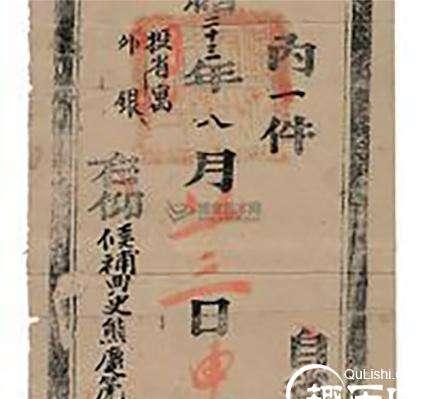The Chincha Minister was an informal, non-permanent official position sent by the emperor to the local area to participate in supervision and management, and in ancient times, the Chincha Minister had considerable power when he arrived at the local area. The Chincha Chancellor had been set up before the Ming Dynasty, but the official use of the name "Chincha" was in the Ming Dynasty, and after the Manchu Qing Entered the Customs, the Ming system was followed and the Chincha Chancellor was set up. There are three main reasons for this: First, the increasingly prominent phenomenon of corruption among local officials has hindered the strengthening of centralized power, so it is necessary to dispatch ministers to rectify the administration of officials and strengthen local management; 2. In the event of an emergency or major situation in the locality, it is necessary to dispatch the Minister of Chincha. For example, during the Kangxi Dynasty, when the San Francisco Rebellion occurred, the Minister of Chincha was sent to deal with military affairs, and the Minister of Chincha was also responsible for supervising the supply of military supplies; Third, when local officials encounter more complex and important affairs, it is difficult for local officials to handle them independently, at which time they will take the initiative to ask the imperial court for advice, hoping to send ministers to assist them.
When the Qing Dynasty Emperor Chincha ministers went to the localities, they first had to prove their identity, especially in ancient times, when the means of communication were not developed, so the emperor often had to issue corresponding certificates to the Qincha ministers. However, the credentials obtained by the Chincha ministers with different functions are different, for example, the ministers in charge of military affairs will be guarded by the Chincha ministers in advance; However, the Minister of Chincha, who deals with general local affairs, does not receive a letter from the magistrate until the matter is settled. In addition, since the Chincha minister enjoyed a high status and power, the Chincha minister was not an ordinary person, and the Qing court had quite strict criteria for the selection of the Chincha minister, mostly by Manchu officials with both ability and political integrity.

In the twenty-seventh year of Guangxu, the Qing Dynasty's Qin Dynasty envoys sealed the official documents
Of course, when the Minister of Chincha went to the locality, he was certainly not alone, and the Minister of Chincha in the Qing Dynasty had to bring an attaché when he went out, generally a member of the Department of The Gate. The entourage has very limited powers and mainly assists the Minister of Chincha in handling cases, but must not interfere in the trial and judgment. Since the Minister of Chincha was to go to a place far away from the capital, so he had to travel by means of transportation, the Qing Dynasty stipulated that the Minister of Chincha should travel by the stagecoach provided by the post stations along the way, and in many cases the Minister of Chincha was also responsible for inspecting the station.
After the Minister of Chincha arrived at the locality, in addition to handling general local affairs and supervising military affairs mentioned above, he was also responsible for trying cases of "serious crimes and matters involving provincial officials", the main purpose of which was to prevent the local governors and the officials from favoring and cheating for personal gain, and the protection of officials and officials. In addition, after the "Beijing control system" was banned during the Jiaqing period, the imperial court often sent chincha ministers to personally review the appeals of the people, so as to reduce the occurrence of unjust, false and wrongly decided cases.